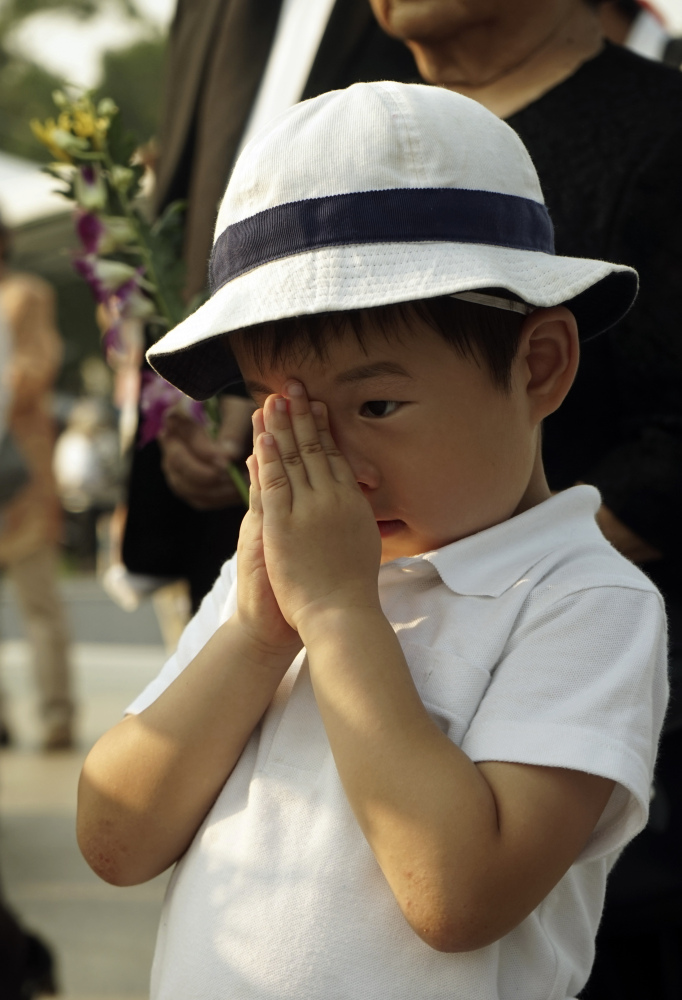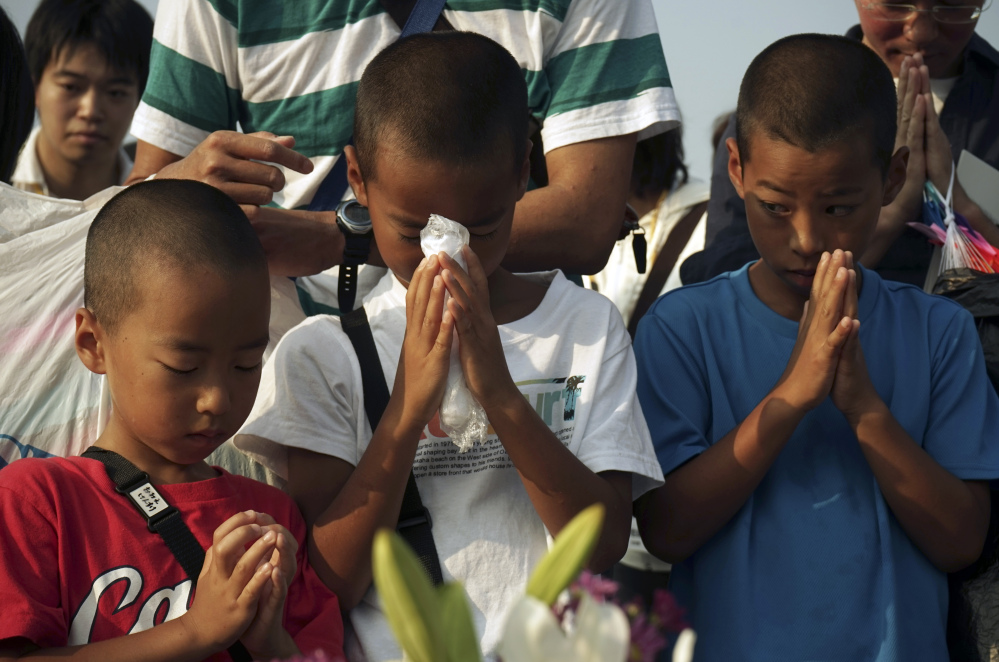TOKYO— Japan’s prime minister called for an end to nuclear warfare Thursday as the country stopped to remember the victims of the atomic bombing of Hiroshima 70 years ago.
At 8:15 a.m. local time, the exact time that U.S. forces dropped the “Little Boy” uranium bomb on Aug. 6, 1945, tens of thousands who had gathered in the city’s peace park stood in silence to honor the 100,000-plus people who died as a result of that attack. It was the first time a nuclear weapon had been used in war. Three days later, a plutonium bomb was dropped on Nagasaki.
“Seventy years on, I reemphasize the necessity of world peace,” Prime Minister Shinzo Abe said at the memorial service. “We have to continue our effort to achieve a world without nuclear weapons. It is our responsibility, and it is our duty.”
Speaking in Malaysia, U.S. Secretary of State John F. Kerry said the anniversary was a “very, very powerful reminder” not only of the impact of war but also of the significance of the nuclear deal reached between Iran and six world powers, the Associated Press reported.
About 55,000 people from 100 countries attended the ceremony in Hiroshima, including U.S. Ambassador Caroline Kennedy and Rose Gottemoeller, undersecretary of state for arms control.
In Tokyo, the U.S. Embassy warned that the anniversary was “a traditional day of protests” against the embassy and told American citizens to avoid demonstrations or other large gatherings.
But in Hiroshima, the scene was peaceful. Lanterns floated in the river through Hiroshima overnight, while survivors of the blast were preparing to read poems at the memorial. A “Don’t repeat the war” conference was held, and choirs performed.
The bombing of Hiroshima, home to a major Japanese military base, flattened the city. The Manhattan Engineer District estimated that there were 255,000 people living in Hiroshima before the blast, which it says killed 66,000 people and injured 69,000 more.
But statistics are difficult to ascertain because it was not clear how many people were living in the city during the war, and people died from bomb-related illnesses many years afterward.
Still, the bombings have left a searing scar on Japan and caused soul-searching among its people about the country’s wartime actions; the vast majority continue to support the pacifist constitution that was written for Japan by its American occupiers.
Abe is now trying to reinterpret, and eventually revise, Article 9 of that constitution, the part that renounces Japan’s right to engage in war.
“Aspiring sincerely to an international peace based on justice and order, the Japanese people forever renounce war as a sovereign right of the nation and the threat or use of force as means of settling international disputes,” that article states.
The Asahi Shimbun newspaper reported that seven associations of Hiroshima survivors met with Abe on Thursday and demanded that he withdraw the bills clearing the way for the constitutional revision.
Beyond Thursday’s commemorations, Japanese people – and Japan’s neighbors – are looking ahead to a statement that Abe is set to make Aug. 14, the day before the anniversary of Japan’s surrender in World War II. His remarks are already expected to be contentious.
Abe’s predecessors apologized for Japan’s wartime actions in their statements on the 50th and 60th anniversaries.
But Abe has been vague about what he will say and most of the members of a special panel set up to advise him on his statement say that he need not apologize again, the Kyodo news agency reported.
Send questions/comments to the editors.




Success. Please wait for the page to reload. If the page does not reload within 5 seconds, please refresh the page.
Enter your email and password to access comments.
Hi, to comment on stories you must . This profile is in addition to your subscription and website login.
Already have a commenting profile? .
Invalid username/password.
Please check your email to confirm and complete your registration.
Only subscribers are eligible to post comments. Please subscribe or login first for digital access. Here’s why.
Use the form below to reset your password. When you've submitted your account email, we will send an email with a reset code.